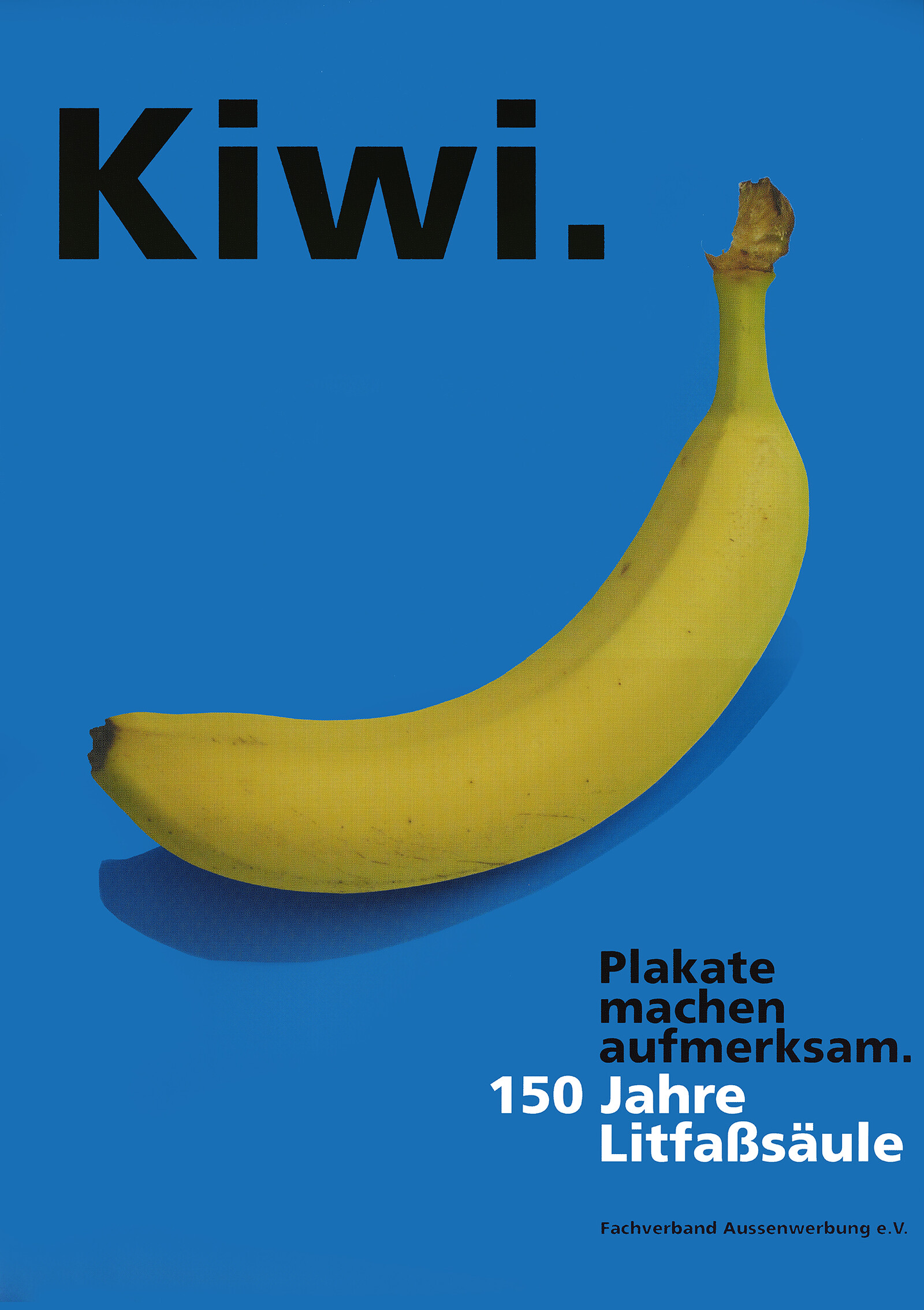From the Beginnings of the Poster until Today
April 8–August 28, 2022
Museumsplatz 1
45128 Essen
Germany
Hours: Tuesday–Sunday 10am–6pm,
Thursday–Friday 10am–8pm
From April 8 to August 28, 2022, the Museum Folkwang will present the poster exhibition We Want You! From the Beginnings of the Poster until Today. In addition to the stylistic development of the poster, the exhibition focuses on the different forms of presentation. Beginning with “wild flyposting” and continuing through the Litfass column to the digital present and future, over 300 posters by Lucian Bernhard, Isolde Baumgart, Hans Hillmann, Alfons Maria Mucha, Henri de Toulouse-Lautrec and Charles Paul Wilp, among others, provide a cultural and media-historical insight into the world of advertising.
In ten exhibition rooms, the Folkwang show offers a comprehensive cross-section of the history of the poster. With early placards, caricatures, illustrations and historical photographs, the journey through time begins in the 18th century with the first precursors of the poster and ends in the present with an outlook on the future. With the help of advertising media typical of the time, such as the Litfass column or video steles, the history of the poster is also told with regard to the way it is disseminated to the public. The special relationship between posters and their perception in public space is another thematic focus of the exhibition and has rarely been shown in museums before.
The main focus of the exhibition is on the various peaks of the poster, such as the years between 1896 and 1914. In the 1920s, with the professionalisation of the advertising industry, there is another milestone, represented by works by Leonetto Cappiello, Walter Schnackenberg, Hermann Kosel and Jan Tschichold, among others. New possibilities for integrating posters into street furniture as well as out-of-home advertising spaces provide new forms of appearance from the 1950s onwards.
The next major change in advertising finally took place with the increasing digitalisation and introduction of the commercial internet in the 1990s and is still relevant today. A glimpse into the future is offered by twelve works that can be expanded into digital space with the help of an app on one’s own smartphone. There, the posters are transformed into animated moving images. Equally futuristic is the prototype of a public transport stop that combines advertising, information and roof greening in a piece of street furniture. The focus is on values such as sustainability and climate neutrality. Here, posters have long since ceased to serve merely as communicators and conveyors of information, but are an integral part of the digital space that is increasingly becoming part of the public sphere.
Since 2008, the German Poster Museum, founded in 1974, has been an independent department of the Museum Folkwang. The merging of the German Poster Museum with the Museum Folkwang closed a gap—entirely in the spirit of Folkwang founder Karl Ernst Osthaus (1874–1921)—which significantly expanded the breadth of the holdings and presentation of different forms of design. Osthaus owned a collection of posters by Germany’s best designers in the former Folkwang Museum in Hagen in 1909.
The exhibition is sponsored by the Stiftung Kunst, Kultur und Soziales der Sparda-Bank West and is supported by Ströer Deutsche Städte Medien, who is also providing the installation of the out-of-home equipment within the exhibition.
Opening: April 7, 2022, 7pm.
Press contact: Manuela Skrabanik, presse [at] museum-folkwang.essen.de



